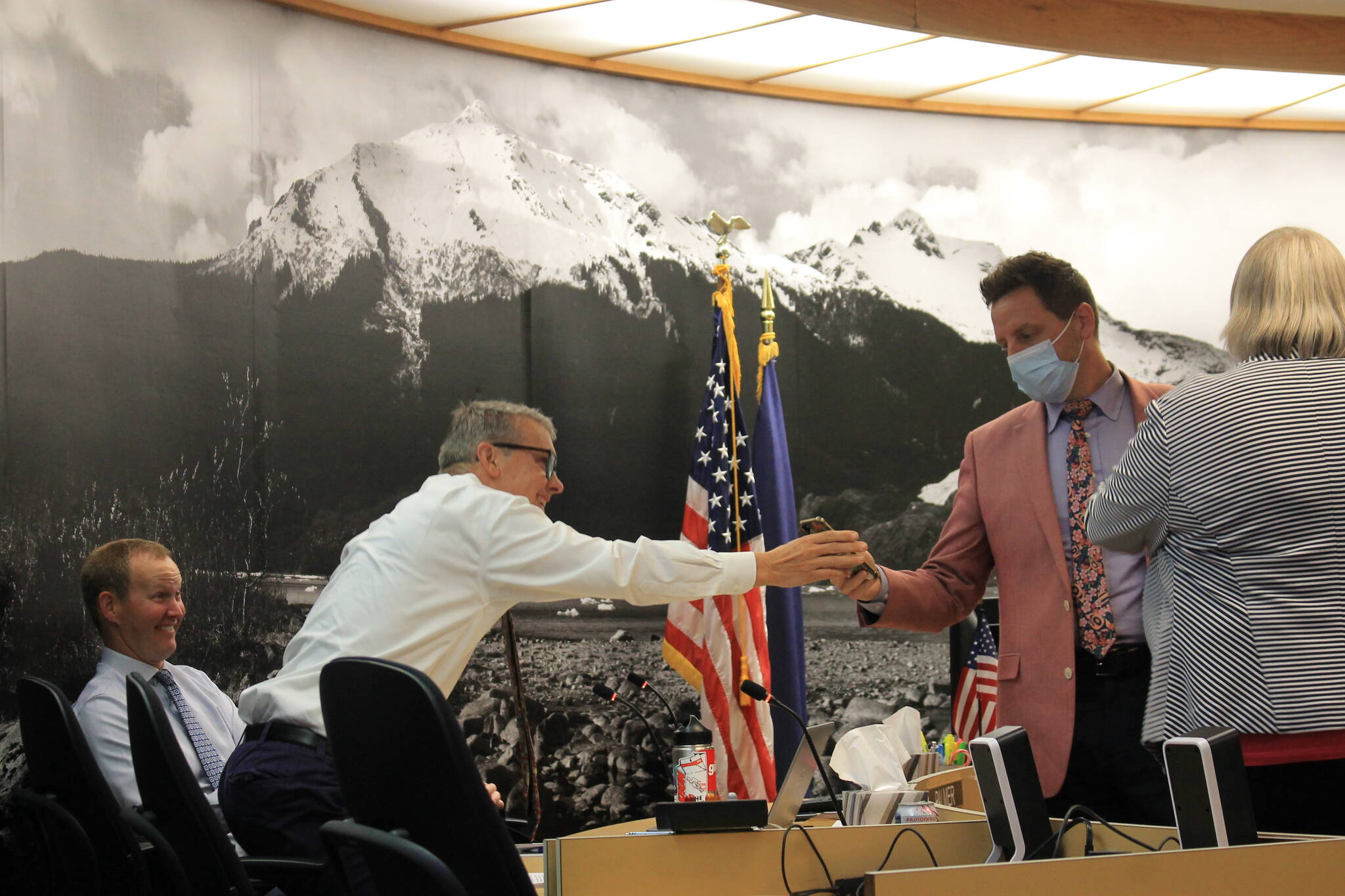After much discussion, the City and Borough of Juneau Assembly decided against two ordinances that officials said blurred the line between providing information and advocacy.
The two ordinances, which were ultimately voted down by Assembly members, would have given the green light for the city to spend $50,000 to provide information related to two ballot initiatives set to hit the local ballot this fall, something that did not seem to sit well with many Assembly members.
The first ordinance discussed would have allotted $25,000 for the city to provide information related to a ballot referendum brought on by a public group that would repeal a current city ordinance that requires mandatory disclosure of real estate values and transactions. The initiative was able to make its way on the ballot via the efforts of a group known as the Protect Juneau Homeowners’ Privacy which collected enough signatures to to put the matter on ballots.
Property buyers may again be able to keep prices secret
Due to Alaska Public Offices Commission regulations, an allotment of money was required to go along with the ordinance if Watt were to advocate publicly in his position as city manager, though it does not require a certain minimum amount of money, according to Robert Palmer, CBJ municipal attorney. Watt said the $25,0000 was chosen as a nominal number that would have been used to cover staff time and help make the “philosophical” decision.
Watt and Palmer said the reasoning behind the ordinance is to allow Watt to explain why the original ordinance that requires mandatory disclosure of real estate values and transactions was put in place, and how the ballot referendum may not be displaying all the facts in a proper context for voters to understand. The ordinance would ensure Watt and other staff would not break APOC’s regulations and face consequences for speaking out on the matter.
[Assembly OKs 3 initiatives to appear on local ballots]
Many Assembly members questioned the ethics behind advocating as a city official and how it would possibly influence the outcome of an election. There was also questioning about what the $25,000 would be used toward.
“We didn’t get enough citizen input, so they have their own ballot initiative,” said Assembly member Wade Bryson. “This is the backlash of it, and I can’t support us advocating against it.”
Assembly member Maria Gladziszewski largely agreed and said that there are still ways for the Assembly to give all the context of the issue to voters without advocating.
“All I want out there are facts, if we can just present facts, facts would be enough,” she said. “Putting out facts is not advocacy, and we have good facts.”
Dave Ignell, a resident of west Juneau, said it doesn’t seem right that the Assembly should advocate for a certain position and said using public funds to advocate for a certain outcome in the election is “not the right way to go.”
“I believed in transparency in government — let the public see the facts and let them decide,” he said. “Taking a position of advocacy using taxpayer funds just doesn’t seem right to me.”
Aaron Spratt, a Juneau resident and past school board candidate who also weighed in on the topic, said the ordinance is “sloppily” written and said he encourages the Assembly to be mindful of the optics this ordinance would show to the public.
“You looked to the voters and they have spoken on this issue and you don’t like it,” he said. “You represent the voters — not to advocate for things that you want.”
Ultimately, the ordinance failed with a 9-0 vote.
The second ordinance would have permitted the Assembly members to advocate for the ballot initiative that would approve $35 million in bonds to go towardfunding the construction of a new City Hall. This ordinance would also give a $25,000 allotment for the Assembly to use for advocacy purposes.
“Information is one thing, but weighing in on an election is another,” said Assembly member Michelle Bonnet Hale, who said she understands why some members of the Assembly would want this ordinance to be passed, but questioned if their possible influence on the election is ethical given the positions they hold with the city.
Bryson said he was for passing the ordinance because it would allow the Assembly to give voters more information on the new City Hall, and explain why the new construction would save the city more money. The ordinance failed with a 6-3 vote.
• Contact reporter Clarise Larson at clarise.larson@juneauempire.com or (651)-528-1807. Follow her on Twitter at @clariselarson.

